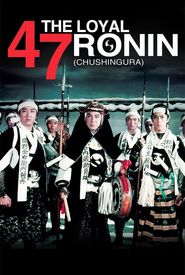Masaharu Matsumura is a cinematic visionary, celebrated for his profound and lasting impact on the film industry, as evidenced by his involvement in a trio of groundbreaking motion pictures that have managed to transcend the boundaries of time, continuing to captivate audiences and inspire new generations of filmmakers.
Matsumura's 1961 cinematic masterpiece, "The Phantom Samurai", stands as a testament to his extraordinary technical skill and artistic mastery as a filmmaker, showcasing his ability to weave a complex tapestry of sound and image that captivates audiences to this day.
This highly acclaimed motion picture has achieved the rare distinction of being recognized as a revered classic within the realm of Japanese cinema, its enduring popularity a testament to Matsumura's unwavering dedication to his craft and his singular artistic vision, which continues to inspire and influence filmmakers to this day.
As a result, "The Phantom Samurai" serves as a powerful tribute to Matsumura's artistic genius, demonstrating his ability to transcend the boundaries of time and genre, and his capacity to create a work of cinematic art that continues to resonate with audiences long after its initial release.
Through his meticulous attention to detail and his unwavering commitment to his artistic vision, Matsumura has created a film that is at once a technical tour-de-force and a deeply personal and emotional work of art, one that continues to captivate and inspire audiences to this day.
In short, "The Phantom Samurai" is a masterpiece that showcases Matsumura's remarkable skill and artistry, and serves as a powerful testament to his enduring legacy as a filmmaker.
Kazuo Matsumura, a distinguished individual whose life story is a testament to his unwavering dedication to his craft, was born into a world of artistic expression, where the boundaries of creativity knew no bounds.
Kazuo Matsumura, a renowned Japanese film director, emerged onto the cinematic scene in the 1920s, specifically in the vibrant city of Tokyo, Japan. As the decade of the 1950s dawned, Matsumura began his illustrious career in the film industry, initially serving as an assistant director, gradually working his way up the ranks to ultimately make his directorial debut in the early 1960s. Matsumura's cinematic endeavors frequently delved into the realms of social justice, morality, and the intricacies of the human condition, earning him a reputation for his unique visual aesthetic and his remarkable capacity to coax captivating performances from his actors.
Matsumura, a renowned figure in Japanese cinema, left an indelible mark on the industry, garnering widespread recognition and accolades for his outstanding contributions. Even after his passing in 1982, his impact on the world of film continues to be felt, with film enthusiasts and scholars globally acknowledging his significance and celebrating his remarkable legacy.
Matsumura's films, a testament to his innovative storytelling and artistic vision, have become an integral part of Japan's cinematic history, preserving a vital piece of the country's cultural heritage for future generations.
Noted Japanese filmmaker Matsumura's impressive body of work, spanning decades, is a testament to his remarkable talent and dedication to his craft, as it extends far beyond his critically acclaimed direction of The Phantom Samurai, a cinematic masterpiece that has garnered widespread recognition and acclaim.
The iconic tale of the forty-seven ronin, whose courageous pursuit of justice against those accountable for the untimely passing of their esteemed leader has become an integral part of Japanese folklore, has been meticulously woven into the cultural fabric of the nation, and Matsumura's innovative and far-sighted direction was instrumental in masterfully rendering this sweeping narrative in a manner that has indelibly marked the hearts and minds of viewers globally.
Matsumura's fastidious nature and unyielding dedication to veracity enabled him to transport audiences to a distant past, enveloping them in a world of samurai ethos, where the valorous pursuit of righteousness was woven into the very fabric of the cinematic experience, as the narrative of the ronin's courageous quest for justice unfolded with unwavering intensity, captivating viewers and transporting them to a bygone era of unyielding honor, duty, and loyalty.
Matsumura's cinematic legacy is profoundly established through his 1961 masterpiece, Kutsukake Tokijirô, a film that not only showcases his exceptional technical prowess as a director but also his remarkable ability to create intricate, multidimensional characters and narratives that continue to mesmerize audiences with their timeless relevance and profound emotional resonance.
Matsumura's remarkable contributions to the cinematic world have been meticulously documented and will forever be ingrained in the annals of film history, as his tireless efforts to elevate the art of filmmaking continue to resonate deeply with contemporary filmmakers, leaving a lasting imprint that defies the constraints of time and space.















